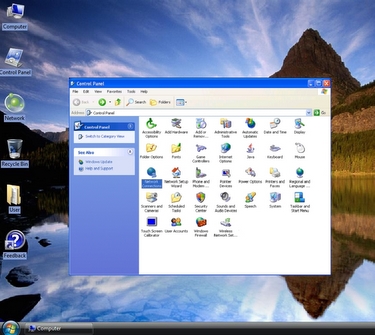Is XP finally dying or is it the PCs it's been running on?


The truth is that users haven't been moving from XP to 7 of their own free will. They've been moving only because their old XP PCs are finally giving up the ghost. Then, and only then, are they getting Windows 7. Or, are they? If you look closer at Net Applications' latest end-user Web statistics you'll see that desktop users are Not moving to Windows 7 in droves.
While XP has dropped to 49.69%, Windows 7 use is only up to 27.92%. So, where is everyone else? Have they finally moved on to desktop Linux!? Ha. I wish! No, while almost 10% of users are still running Vista-the poor sods-many other people are moving on to Mac OS X.
You didn't need a survey to tell you that though. All you need to do is look around any coffee shop and you can see that for yourself. In one of my own local favorite hangouts-the Dripolator in Asheville, NC--I just did a quick count and there's eight Mac laptops is use; three Windows PCs, two Windows 7 and one XP; and yours truly with my Samsung Chromebook.
What's far more telling though was the one woman who was using her iPad 2 with a Bluetooth keyboard. Two others were working with older iPads and one was using a Galaxy Tab using just their fingers. Everyone in the place, of course, had a smartphone. The phones were evenly divided between iPhone and Android models with one guy getting ticked off at his Blackberry. It's the tablet and smartphone users who are really pointing the way to the end-user operating system future.
According to a recent IDG global smartphone survey, 69% of users are now using their phones for business. Specifically, "70% browse the Internet regularly and use mobile applications. These devices are no longer limited to calls, email, and text messages as people go online from home, on the move, and in the office. When surfing the web on smartphones, respondents indicated that general and IT news are most popular, followed by social networking access."
In addition, 20% of this group, who were self-selected, tech. savvy users, already own tablets. Half of them are using their tablets for work. They're using them for "Web browsing (93%), email (84%), mobile apps (72%), watching videos (69%), and reading publications (66%)."
The world is leaving fat-client desktops, like Windows, and yes, Mac OS X and desktop Linux behind. The desktop operating system isn't going to die out, but it's already becoming less important. In the next few years, more and more of us are going to be using tablets and smartphones for both home use and business.
In the long run, the question isn't going to be "Which desktop operating system is going to be the winner?" No, it's going to be, "Which mobile operating system will be the winner." In 2021, we won't be comparing Windows, Mac OS X and Linux as much as we will be Apple iOS; Google Android; HP webOS; other Linux-based mobile operating system such as MeeGo; and, possibly, Windows 8.
"XP? WIndows 7? Those old things?" We'll say. "I don't know how the old folks ever coped with them!"
Related Stories:
Windows XP finally dips below 50 per cent mark
Windows' Endgame. Desktop Linux's Failure
As Microsoft's monopoly crumbles, its mobile future is crucial